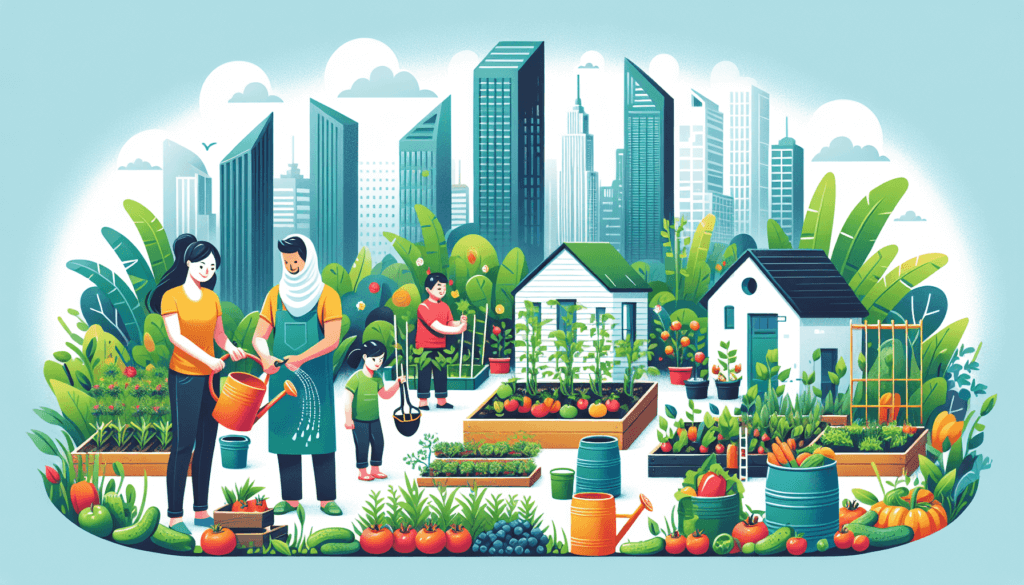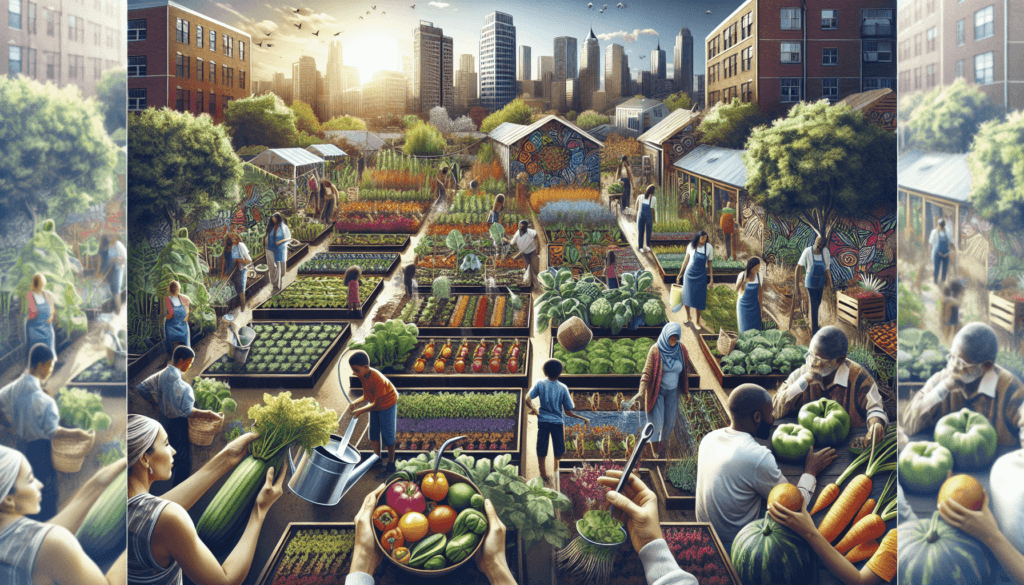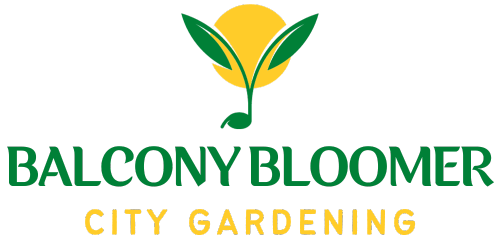Urban gardening initiatives are more than just a trend; they are a powerful avenue for promoting food justice in our communities. By providing access to fresh, nutritious produce in urban areas, these initiatives aim to address the disparities in food access and health that exist in low-income neighborhoods. By fostering community engagement, education, and empowerment, urban gardening initiatives are not only transforming empty lots into vibrant green spaces but also creating a pathway towards a more equitable and sustainable food system.

Importance of Food Justice
Food justice refers to the equitable distribution of healthy and culturally appropriate food to all individuals, regardless of their socioeconomic status or geographical location. It is a concept that aims to address the systemic inequalities and injustices present in our current food systems. Ensuring food justice is crucial for the well-being of individuals, communities, and the environment. By promoting food justice, we can improve access to nutritious food, support community empowerment, and foster sustainable and resilient food systems.
Definition of Food Justice
Food justice encompasses more than just ensuring access to food. It recognizes that everyone deserves not only enough food to survive but also nutritious and culturally appropriate food choices. It acknowledges the importance of social justice and equality in food systems, taking into consideration factors such as race, gender, socioeconomic status, and geography. Food justice advocates for fair treatment and equal opportunities for all individuals throughout the food system, from production to consumption.
The Impact of Food Injustice in Urban Areas
Food injustice is particularly prevalent in urban areas, where low-income communities often lack access to affordable and healthy food options. This phenomenon, known as food deserts, exacerbates health disparities and contributes to conditions like obesity, diabetes, and malnutrition. The lack of access to fresh fruits, vegetables, and whole grains undermines the overall well-being of individuals and communities. Additionally, urban areas often face environmental challenges, such as pollution and limited green spaces, which further exacerbate food injustice issues.
The Role of Urban Gardening Initiatives in Addressing Food Justice
Urban gardening initiatives play a crucial role in addressing food justice issues in urban areas. These initiatives involve cultivating plants and growing food in urban settings, such as rooftops, community gardens, and vacant lots. By bringing food production closer to urban dwellers, urban gardening initiatives increase access to fresh and nutritious produce. They empower communities to take control of their food systems and provide opportunities for skill development, environmental sustainability, and social cohesion. Urban gardening enables residents to have an active role in shaping their health, fostering a sense of ownership and pride within the community.
Challenges in Promoting Food Justice in Urban Gardening
While urban gardening initiatives offer numerous benefits, they also face several challenges in promoting food justice. These obstacles are crucial to recognize and address to ensure the success and effectiveness of these initiatives.
Limited Access to Resources
One significant challenge in urban gardening is the limited access to essential resources such as land, seeds, tools, and materials. Many urban communities lack the necessary space to start their gardens or face restrictions on land use. Additionally, the high costs associated with gardening supplies and equipment may act as barriers for individuals with limited financial resources. Overcoming these challenges requires exploring creative solutions, such as partnering with local organizations, utilizing shared spaces, and advocating for policies that support community-led gardening initiatives.
Lack of Knowledge and Skills
Another obstacle in promoting food justice through urban gardening is the lack of knowledge and skills among community members. Many individuals may not have prior experience or understanding of gardening practices, making it difficult for them to initiate and maintain successful gardens. Providing comprehensive education and training programs that teach gardening techniques, sustainable practices, and cultivation methods can empower individuals and help them develop the necessary skills to grow their food.
Inequalities in Land Distribution
In urban areas, inequalities in land distribution create additional challenges for promoting food justice. Certain communities may have limited access to land, while others have an abundance of available space. This disparity can further contribute to the lack of food access and perpetuate existing socioeconomic inequalities. Addressing land distribution inequalities requires advocating for policies that prioritize equitable land distribution, providing opportunities for land tenure and ownership for all community members.
Lack of Community Engagement
Community engagement plays a vital role in the success of urban gardening initiatives. However, one common challenge is the lack of community involvement and long-term engagement. Without active participation and input from the community, initiatives often struggle to gain traction and make a significant impact. Creating avenues for community input, involving residents in decision-making processes, and fostering a sense of ownership and pride can help overcome this challenge.
Strategies for Promoting Food Justice in Urban Gardening Initiatives
To overcome the challenges mentioned above, various strategies can be employed to promote food justice in urban gardening initiatives. These strategies aim to increase community engagement, enhance access to resources, develop necessary skills and knowledge, and advocate for supportive policies.
Education and Awareness Programs
Education and awareness programs play a crucial role in promoting food justice in urban gardening. These programs can focus on teaching gardening skills and sustainable practices, providing nutrition education and cooking classes, and raising awareness about cultural diversity and inclusion. By equipping community members with the necessary knowledge and skills, these programs empower individuals to grow their food, make healthy food choices, and celebrate their cultural heritage through gardening practices.
Community Collaboration and Partnerships
Community collaboration and partnerships are essential for the success of urban gardening initiatives. Engaging community members in decision-making processes ensures that initiatives are tailored to meet their specific needs and preferences. Partnering with local organizations, businesses, and community groups can provide valuable resources, expertise, and support. Creating community gardens and shared spaces fosters a sense of belonging and encourages collaboration among residents.
Accessible Resources and Funding
Ensuring access to resources and funding is critical for promoting food justice in urban gardening initiatives. Securing grants and funding opportunities can provide the necessary financial support to start and maintain gardens. Providing affordable seeds, tools, and materials reduces the financial barriers associated with urban gardening. Establishing community-led seed banks allows individuals to save and exchange seeds, fostering a sense of self-sufficiency within the community.
Policy and Advocacy Initiatives
Advocacy for supportive policies is essential to address systemic barriers and promote food justice. This involves advocating for equitable land distribution policies, promoting food justice in local government agendas, and supporting legislation that promotes urban agriculture. Engaging policymakers and working closely with local governments can create an enabling environment for urban gardening initiatives to thrive.
Education and Awareness Programs
Education and awareness programs play a crucial role in promoting food justice through urban gardening initiatives.
Teaching Gardening Skills and Sustainable Practices
One key aspect of education and awareness programs is teaching individuals the necessary gardening skills and sustainable practices. These programs should focus on topics such as soil preparation, planting techniques, pest management, composting, and water conservation. By equipping individuals with these skills, they can cultivate healthy and productive gardens while minimizing their environmental impact.
Nutrition Education and Cooking Classes
Promoting food justice involves not only growing food but also understanding its nutritional value and incorporating it into daily diets. Nutrition education programs can teach individuals about the importance of consuming a balanced and diverse diet, the benefits of incorporating fruits and vegetables, and how to prepare healthy meals using garden-fresh produce. Cooking classes can provide hands-on experience in preparing nutritious and culturally diverse dishes, encouraging individuals to make informed and healthy food choices.
Promoting Cultural Diversity and Inclusion
Food is a powerful medium for celebrating cultural diversity and fostering inclusion within communities. Education and awareness programs should focus on highlighting the diverse food traditions and cultural practices within the community. By celebrating and respecting different culinary traditions, individuals can develop a deeper appreciation for their own cultural heritage and create a more inclusive and cohesive community.

Community Collaboration and Partnerships
Community collaboration and partnerships are vital for the success of urban gardening initiatives.
Engaging Community Members in Decision-Making
Engaging community members in decision-making processes ensures that urban gardening initiatives align with their needs and aspirations. Creating avenues for community input, such as community meetings, surveys, and focus groups, allows individuals to voice their opinions and actively participate in shaping the initiatives. By involving residents in the decision-making process, initiatives can better address the specific challenges and priorities of the community.
Partnering with Local Organizations and Businesses
Partnering with local organizations and businesses can provide valuable resources, expertise, and support to urban gardening initiatives. Local nonprofits, schools, universities, and businesses may offer funding opportunities, access to land, volunteers, and technical assistance. Collaborating with these stakeholders strengthens the initiatives’ capacity and reach, fostering a sense of collective responsibility and shared purpose within the community.
Creating Community Gardens and Shared Spaces
Establishing community gardens and shared spaces creates opportunities for collaboration and social interaction among community members. These spaces can serve as hubs for knowledge sharing, skill development, and socializing. By providing accessible and inclusive spaces for gardening, residents can come together, learn from one another, and build strong social networks, enhancing social cohesion and community resilience.
Accessible Resources and Funding
Ensuring access to resources and funding is crucial for promoting food justice in urban gardening initiatives.
Securing Grants and Funding for Urban Gardening Initiatives
Securing grants and funding opportunities is essential for initiating and sustaining urban gardening initiatives. Garden organizers can explore various funding sources, such as grants from foundations and government agencies that focus on community development, public health, or environmental sustainability. Additionally, crowdfunding platforms and community fundraising efforts can help generate financial support from within the community itself.
Providing Affordable Seeds, Tools, and Materials
The cost of seeds, tools, and materials can be a significant barrier for individuals interested in urban gardening. To address this challenge, initiatives can explore partnerships with local suppliers, negotiate bulk purchasing discounts, or source recycled and repurposed materials. Providing affordable or subsidized seeds, tools, and materials makes urban gardening more accessible and inclusive, particularly for communities with limited financial resources.
Establishing Community-Led Seed Banks
Community-led seed banks are invaluable resources for urban gardening initiatives. These seed banks enable community members to save, exchange, and access a wide variety of locally adapted seeds. By preserving local seed varieties and promoting seed sovereignty, communities can regain control over their food systems and reduce dependency on external seed sources. Establishing seed banks can strengthen community resilience and contribute to the preservation of biodiversity.

Policy and Advocacy Initiatives
Advocacy for supportive policies is crucial for promoting food justice in urban gardening initiatives.
Advocating for Equitable Land Distribution Policies
Equitable land distribution is fundamental to addressing food justice issues in urban areas. Advocacy efforts should focus on promoting policies that ensure fair access to land for gardening purposes. This may involve advocating for land use policies that prioritize community gardens, supporting land tenure initiatives, and challenging zoning regulations that restrict urban farming. By advocating for equitable land distribution, initiatives can create opportunities for individuals and communities to participate in food production and enhance food access.
Promoting Food Justice in Local Government Agendas
Engaging local governments and promoting food justice in their agendas is essential for institutionalizing support for urban gardening initiatives. Advocacy efforts should aim to influence urban planning policies, public health agendas, and sustainable development plans. Collaborating with local officials, policymakers, and city councils can help integrate food justice principles into urban governance, resulting in long-term support and investment in urban gardening.
Supporting Legislation for Urban Agriculture
Supporting legislation that promotes urban agriculture is crucial for fostering food justice. Initiatives can advocate for policies that enable and regulate various forms of urban agriculture, such as rooftop gardens, vertical farming systems, and urban orchards. Additionally, efforts should be made to remove legal barriers and outdated regulations that hinder the growth and expansion of urban gardening initiatives. Supporting legislation empowers communities to engage in sustainable food production and strengthen local food systems.
Measuring Impact and Evaluation
Measuring the impact of urban gardening initiatives and evaluating their outcomes is essential for continual improvement and learning.
Developing Metrics for Assessing Food Justice Outcomes
Developing metrics and indicators is crucial to assess the impact of urban gardening initiatives on food justice outcomes. These metrics may include measures such as increased access to fresh produce, improved dietary habits, reduced food insecurity, increased community engagement, and enhanced environmental sustainability. By systematically measuring and monitoring these outcomes, initiatives can identify areas of success and areas for improvement, informing future program development and resource allocation.
Collecting Data on Community Engagement and Participation
Collecting data on community engagement and participation provides valuable insights into the effectiveness of urban gardening initiatives. This data may include metrics such as the number of community members involved, the diversity of participants, the level of community collaboration, and the extent of local support. By understanding the level of community involvement, initiatives can identify strategies to improve engagement and tailor their programs to meet community needs more effectively.
Evaluating the Impact of Education and Awareness Programs
Evaluation of the impact of education and awareness programs is crucial for determining their effectiveness and identifying areas for improvement. This evaluation may involve collecting data on participants’ knowledge gain, behavior change, and attitudes towards gardening and food choices. By assessing the impact of these programs, initiatives can enhance their curriculum, delivery methods, and engagement strategies, ensuring they are meeting the needs of the community and promoting food justice effectively.

Success Stories in Promoting Food Justice in Urban Gardening Initiatives
Numerous success stories showcase the transformative power of urban gardening initiatives in promoting food justice.
Case Studies of Successful Initiatives
One successful initiative is the “Detroit Black Community Food Security Network” in Detroit, Michigan. This community-led organization works to build food sovereignty and address food justice issues in underserved African American communities. Through initiatives like the D-Town Farm and Garden Resource Program, they have created opportunities for urban agriculture, education, and community empowerment. The organization emphasizes racial and social justice, recognizing the importance of addressing systemic inequalities in food systems.
Another inspiring example is the “Hydroponic Urban Micro Farms” project in New York City. This initiative utilizes hydroponic systems to grow fresh produce in small urban spaces. By implementing vertical farming techniques, they maximize food production in limited areas, making healthy and locally grown food accessible to urban communities. This project demonstrates the scalability and replicability of innovative urban gardening solutions.
Lessons Learned from These Initiatives
Successful urban gardening initiatives have offered valuable lessons for promoting food justice. One crucial lesson is the importance of community empowerment and ownership. By involving community members in decision-making and fostering a sense of ownership, initiatives become more sustainable and impactful. Additionally, partnerships and collaborations with local organizations and businesses have proven instrumental in securing resources and support for the initiatives. These partnerships create a supportive ecosystem that amplifies the impact of urban gardening.
Replication and Scaling-Up Strategies
Replication and scaling-up of successful urban gardening initiatives are crucial for maximizing their impact and reach. Strategies for replication may involve sharing knowledge and best practices through workshops, training programs, and online resources. Establishing networks and platforms that connect successful initiatives with aspiring gardeners can facilitate the dissemination of knowledge and resources. Additionally, engaging policymakers and advocating for supportive policies at the regional and national levels can create an enabling environment for scaling-up successful urban gardening initiatives.
Conclusion
Promoting food justice in urban gardening initiatives is of utmost importance for creating equitable, sustainable, and resilient food systems. By addressing the challenges of limited resources, lack of knowledge, land distribution inequalities, and lack of community engagement, we can overcome barriers and ensure access to healthy food for all. Through strategies such as education and awareness programs, community collaboration and partnerships, accessible resources and funding, and policy and advocacy initiatives, we can foster food justice, empower communities, and transform our food systems. It is a collective call to action for individuals, communities, and policymakers to work together towards a more just and sustainable future. Urban gardening has the potential to nurture not only our bodies but also our communities and the planet. Let us embrace the power of urban gardening and promote food justice for all.



